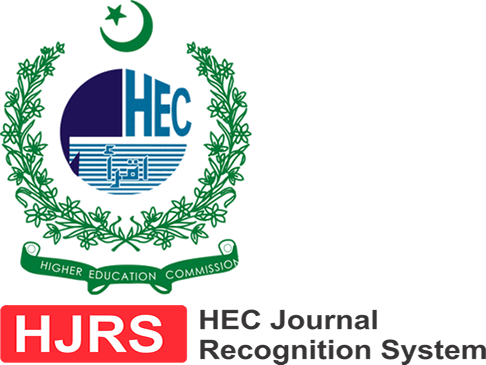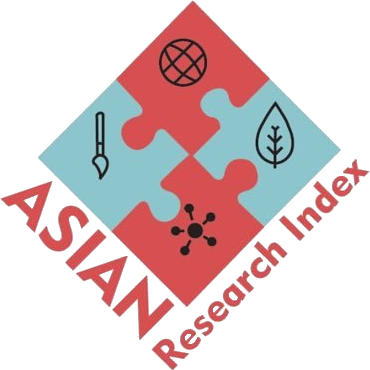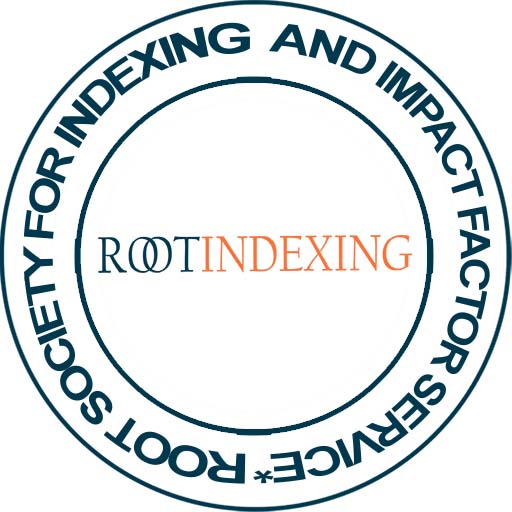AN EVALUATIVE STUDY OF BLENDED LEARNING AS AN INNOVATIVE CHALLENGE FOR PAKISTANI ACADEMIA: PERCEPTION OF UNDERGRADUATE STUDENTS
DOI:
https://doi.org/10.5281/zenodo.8034783Keywords:
Blended learning, undergraduate students, limitations, advantages, perception, technical support servicesAbstract
ABSTRACT
Blended Learning is blend of online learning activities, pedagogical methods and instructional technologies with F2F teaching. Importance of active participation of individuals in learning process is obvious and active learning involves dynamic partnership of teacher and students to share responsibility of instruction. Blended learning enhances interaction, understanding and involvement of students and teachers in the learning process. This is now globally, recognized teaching pedagogy in all kinds of higher education institutions. Blended Learning is the need of hour for the 21st century. It is a unique approach to impart knowledge, understanding and skills in the students. The purpose of the study is to investigate perception of undergraduate students about blended learning. This is a quantitative research in which a survey conducted by using structured questionnaire. Objective of this research study is to investigate the perception of students about advantages and challenges of blended learning. The sample of the study is 50 undergraduate students, randomly selected from the target population of a public university of Pakistan. The data is collected online. From the findings, it was concluded that students perceived digital illiteracy, Internet connectivity, technical problems, frustration, social isolation, lack of technical support service and access to personal devices as limitations of Blended Learning. The students appreciated BL as it develops computer skills, communication skills and provides easy access to authentic resources, and timely feedback from instructors and enhances their confidence. It was recommended that by opening more computer laboratories with the provision of technical support services and regular training of students from the university can overcome the limitations of BL.
References
Stödberg, U., & Håkansson Lindqvist, M. “A Municipal Implementation of a New Learning Management System in k-12 Schools: The Teacher Perspective”. In International Conference on Information, Communication Technologies in Education, ICICTE 2017, Rhodes, Greece, 6 to 8 July, 2017.
Porter, W. W., Graham, C. R., Bodily, R. G., & Sandberg, D. S. “A Qualitative Analysis of Institutional Drivers and Barriers to Blended Learning Adoption in Higher Education” The Internet and Higher Education, 28 (2016) pp. 17-27. doi:10.1016/j.iheduc.2015.08.003.
Al-Hunaiyyan, A., Alhajri, R. A., & Al-Sharhan, S. “Perceptions and Challenges of Mobile Learning in Kuwait” Journal of King Saud University-Computer and Information Sciences, (2018) p 279-289.
Edannur, S., & Marie, S. M. J. A. “Improving Student Teacher’s Perceptions on Technology Integration using a Blended Learning Program” Journal on School Educational Technology, 13 no 2, (2017) p 42.
Ertmer, P. A. “Technology integration” The Sage Encyclopedia of Educational Technology, (2015) P 751.
Eddles-Hirsch, K. “Phenomenology and Educational Research” International Journal of Advanced Research, 3 no 8 (2017) pp. 251- 260.
Brown, M. G. “Blended Instructional Practice: A Review of the Empirical Literature on Instructors' Adoption and use of Online Tools in Face-to-face Teaching”. Internet & Higher Education, 31,no 1-10. (2016) Doi:10.1016.
Cheok, M. L., & Wong, S. L. “Predictors of e-Learning Satisfaction in Teaching and Learning for School Teachers: A Literature Review”. International Journal of Instruction, 8, no 1, (2015) p 75-90. Cheok, M. L., Wong, S. L., Ayub, A. F., & Mahmud, R. “Teachers' perceptions of e-learning in Malaysian secondary schools” Malaysian Online Journal of Educational Technology, 5, no 2, (2017) p 20-33.
Koehler, M. J., & Mishra, P. “What Happens When Teachers Design Educational Technology? The development of technological & pedagogical content knowledge” Journal of Educational Computing Research, 32 no 2, (2005) p 131-152. Doi: 10.2190/0EW7- 01WB-BKHL-QDYV
Nikolopoulou, K., & Gialamas, V. “Barriers to ICT use in high schools: Greek Teachers’ perceptions” Journal of Computers in Education, 3 no 1, (2016) p 59-75. Turgut, Y. “A Comparison of Pre-service, In-service and Formation Program for Teachers' Perceptions of Technological Pedagogical Content Knowledge (TPACK) in English Language Teaching (ELT)” Educational Research and Reviews, 12 no 22, (2017) pp. 1091-1106.
Ekanayake, S. Y., & Wishart, J. “Integrating Mobile Phones into Teaching and Learning: A case Study of Teacher Training through Professional Development Workshops” British Journal of Educational Technology, 46 no 1 (2015) p 173-189. Moustakas, C. “Phenomenological Research Methods” (Thousand Oaks, CA: SAGE Publications 1994).
Baran, E. “A Review of Research on Mobile Learning in Teacher Education” Journal of Educational Technology & Society, 17, no.4 (2014) p 17. Creswell, J. W. “Research designs: Qualitative, Quantitative, and Mixed Methods Approaches” , (London: Sage Publications. 2009).
Gil-Flores, J., Rodriguez-Santero, J., & Torres-Gordillo, J. “Factors that Explain the Use of ICT in Secondary-Education Classrooms” The Role of Teacher Characteristics and School Infrastructure, Computers in Human Behavior, (2017) p 441 doi:10.1016.
Zahra, R., & Bilwani, A. “Perceptions of Teachers Regarding Technology Integration In Classrooms: A Comparative Analysis of Elite and Mediocre Schools” Journal of Education and Educational Development, 3 no 1, (2016) pp. 1-29
Ravitch, S. M., & Carl, N. M. “Qualitative Research: Bridging the Conceptual, Theoretical, and Methodological” (Thousand Oaks, CA: Sage Publications 2015). Rubin, H. J., & Rubin, I. S. “Qualitative Interviewing: The Art of Hearing Data” (Thousand Oaks, CA: Sage Publications 2012).
Tondeur, J., van Braak, J., Ertmer, P. A., & Ottenbreit-Leftwich, A. “Understanding the Relationship Between Teachers’ Pedagogical Beliefs and Technology use in Education: a systematic review of qualitative evidence” Educational Technology Research and Development, 65 no 3, (2017) pp. 555-575.
Willermark, S. “Technological pedagogical and content knowledge: A review of Empirical studies” Journal of Educational Computing Research, 56 no 3, (2018) pp. 315-343.
Qasem, A. A., & Viswanathappa, G. “The Teachers’ Perception Towards ICT Integration: Professional Development Through Blended Learning” Journal of Information Technology Education: Research, 15, (2016) pp. 561-575.
Ravitch, S. M., & Carl, N. M. “Qualitative Research: Bridging the Conceptual, Theoretical, and Methodological” (Thousand Oaks, CA: Sage Publications 2015).
Osakwe, J., Dlodlo, N., & Jere, N. “Where Learners' and Teachers' Perceptions on Mobile Learning Meet: A Case of Namibian Secondary Schools in the Khomas Region” Technology in Society, 49, no 16 (2017) p 30. doi:10.1016/j.techsoc.2016.12.004.

Downloads
Published
How to Cite
License
Copyright (c) 2023 AL MISBAH RESEARCH JOURNAL

This work is licensed under a Creative Commons Attribution 4.0 International License.
AL-MISBAH Research Journal is full open access and licensed under Creative Commons Attribution 4.0 International License; and Published by: Research Institute of Culture & Ideology (REINCI), Islamabad, Pakistan. This allows the research community and the general public to gain unlimited, free and immediate access to scholarly articles, and to reuse the content freely provided that proper attribution is given to the original authors.









